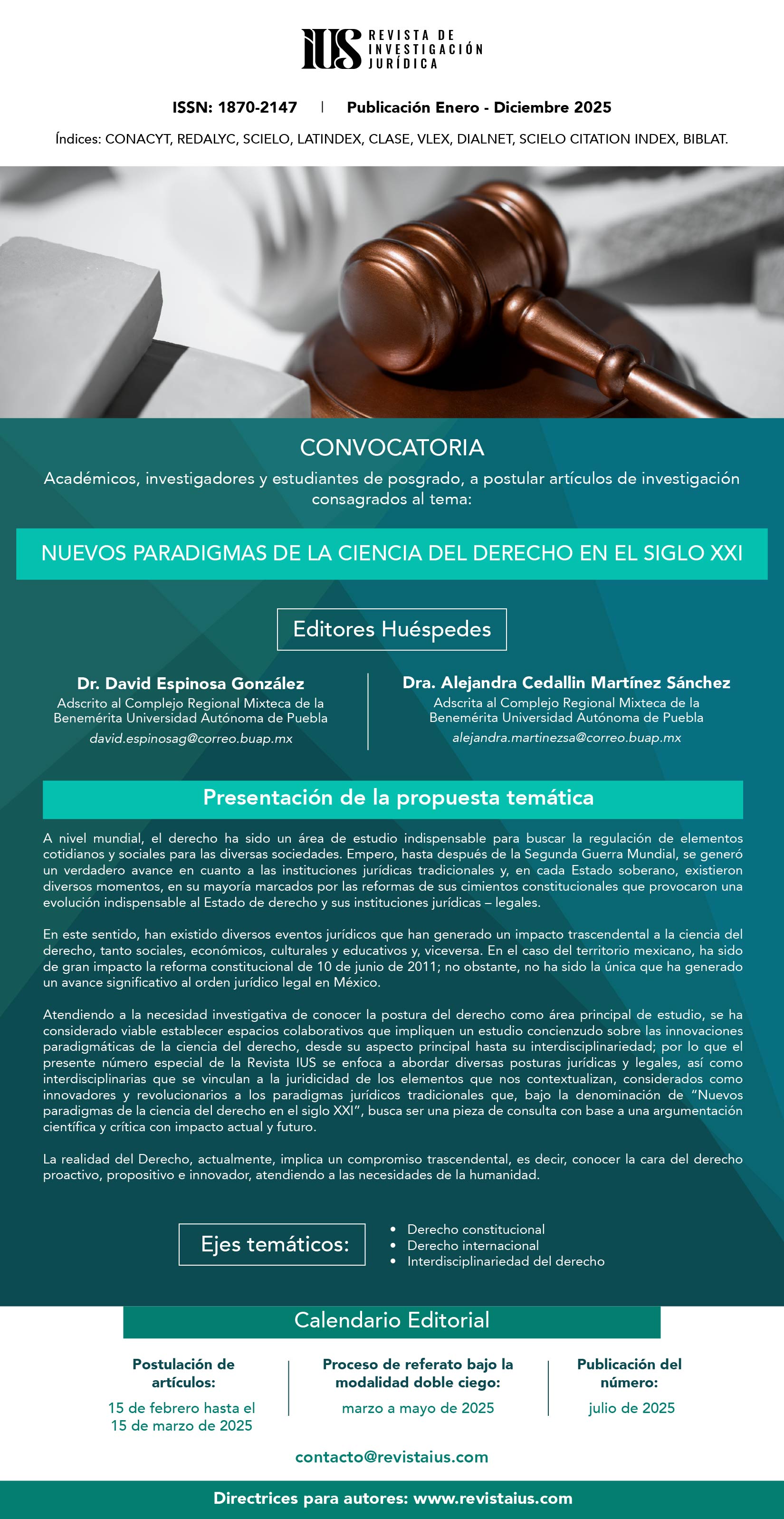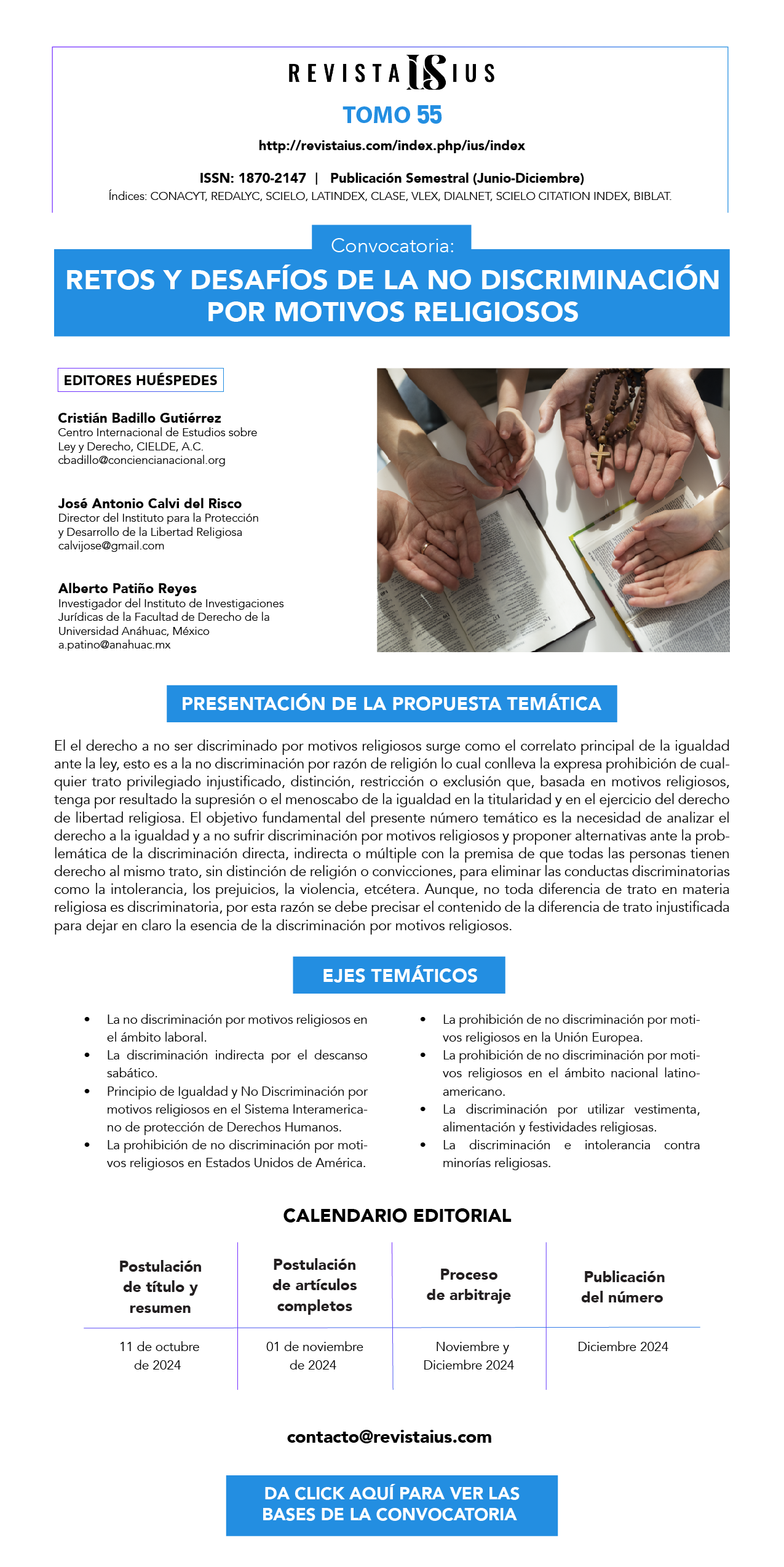Migrantes y trabajo forzado: enfoque normativo en México y tendencias jurisprudenciales en cortes regionales
DOI:
https://doi.org/10.35487/rius.v14i45.2020.593Abstract
El flujo de migrantes se ha incrementado en todo el mundo. La causa de origen es la pobreza e inequidad social. En respuesta, y con el objeto de prevenir y erradicar el trabajo forzado, el derecho internacional y nacional contempla disposiciones para proteger a los migrantes. No obstante, los procedimientos de protección a los migrantes en gran medida dependen de la jurisdicción nacional. El artículo tiene dos objetivos: estudiar los ejes normativos sobre la situación actual que viven los trabajadores migrantes en torno a la discriminación y a la protección jurídica de sus derechos laborales; y reconocer el desarrollo jurisprudencial sobre el trabajo forzado en cortes constitucionales y regionales. La aportación significativa del artículo radica en mostrar que hay un desarrollo creciente de legislación nacional e instrumentos de protección internacionales, que se usan tanto en procedimientos civiles o penales para erradicar el trabajo forzado de los migrantes como grupo vulnerable.
Downloads
Downloads
Published
Issue
Section
License
Revista IUS, published by the Legal Sciences Institute of Puebla A.C., is distributed under the Creative Commons Attribution-NonCommercial 4.0 International (CC BY-NC 4.0) license.
We authorize collaborators to upload a copy of their published work on their personal websites or any Open Access repository, provided that Revista IUS is specifically cited as the original source, indicating the year and issue of the respective example and adding the link to the webpage on which this publication can be freely consulted in toto and without charge: http://www.revistaius.com
Readers are free to:
Share, copy and redistribute the material via any medium or format.
The licensor cannot revoke these freedoms as long as you follow the license terms.
Under the following terms:
Attribution: You must give appropriate credit, provide a link to the license, and indicate if changes were made.
You may do so in any reasonable manner, but not in any way that suggests the licensor endorses you or your use.
NonCommercial – You may not use the material for commercial purposes.
If you remix, transform or build upon the licensed material, its distribution is not permitted.
Charges for managing articles: Revista IUS will not charge for receiving, processing or publishing articles (Article Processing Charge, or APC) submitted by authors.





